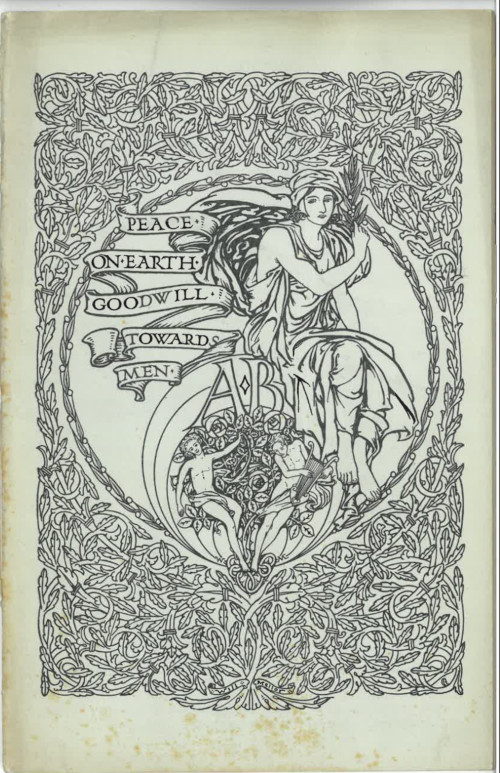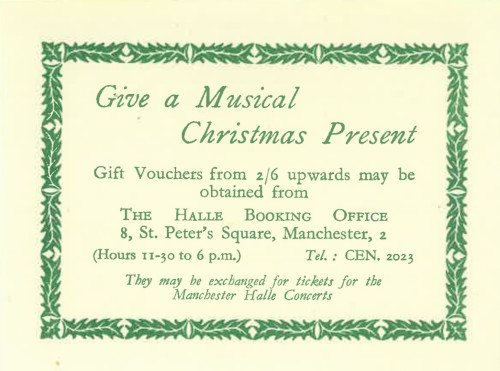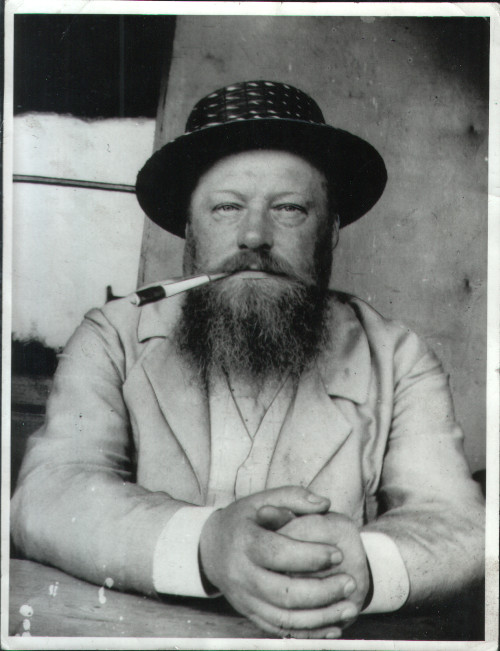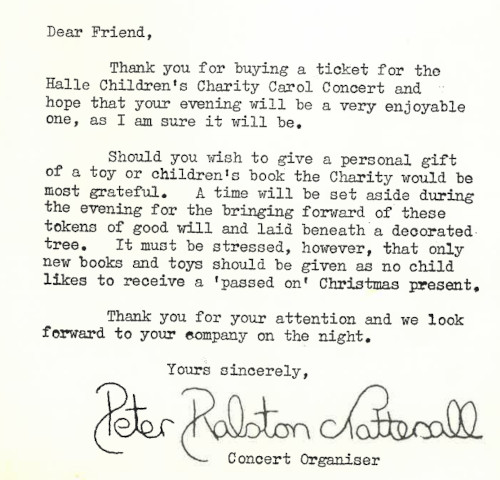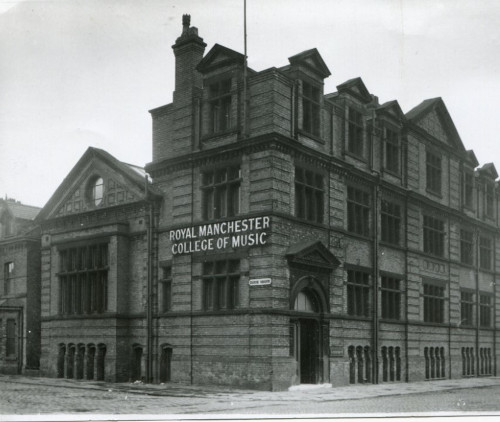Archives Hub feature for January 2024
Thanks to the National Lottery Heritage Fund, the Hallé Concerts Society have the opportunity to interrogate and share their archive collections in ways never before possible. One of those ways is through research and talks. With a generous audience of concert-goers, patrons, members and more, the appetite to learn more about the orchestra they love is ravenous. That got the project archivist, Heather Roberts, thinking. There are so many people who give to the Hallé and so much that the Hallé gives in return. What have been some of the most surprising philanthropic moments in its history? Heather turned to the archive to find out.
Through minutes, photographs, letters, memos, newspaper articles, programme notes and more, the recurring themes of giving are: time and talent, fundraising concerts and awareness raising concerts, instruments, buildings, memories and personal treasures, and sponsorship. But of course, in this modern age, fundraising and the Arts and all that jazz require business support and financial assistance and all sorts. Many businesses have registered charitable status to receive certain funds and to operate within certain spheres of financial and strategic areas. It’s no surprise then, that the Hallé Concerts Society has a large education and community ensembles team – it’s par for the course that community engagement is essential for the modern Arts organisation.
The spirit of giving in the Hallé however, did not start from a strategic business imperative. According to the archive, it started with the man himself, Charles Hallé. An impresario, pianist, conductor and educator of international reputation, his death in 1895 led to large public mourning for the loss of such a generous social staple with 73 wreaths being sent to his grave from admires across the country. So much so, that his obituary in the Guardian is almost one-third filled with anecdotes of his giving nature – not just in financial aid but in using the orchestra and his humanity to support others of greater need such as fundraising concerts for the Railway Servants Orphanage for Fatherless Children, ensuring there were always more affordable seats at any concert to balance out the access to music between those with more and less means etc. This spirit of philanthropy persevered, so much so that when Hallé died, his friends and supporters were quick to gather around and preserve his orchestra and its service to the people of Manchester, creating the Hallé Concerts Society to continue his work supported by guarantors.
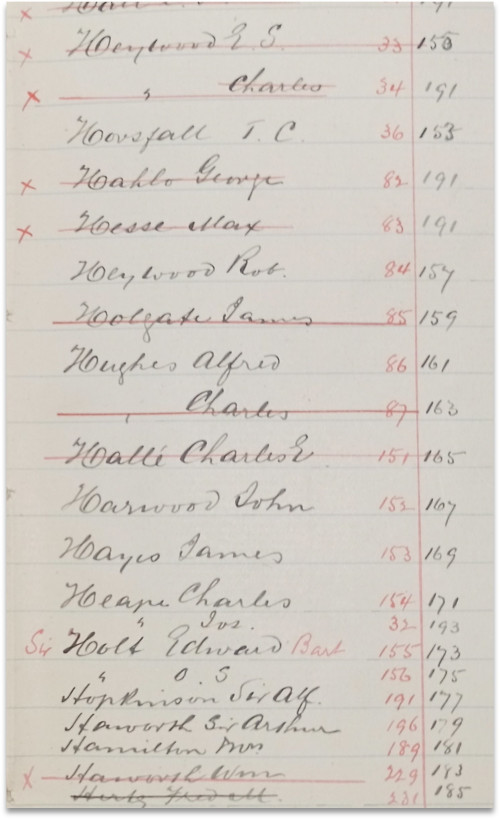
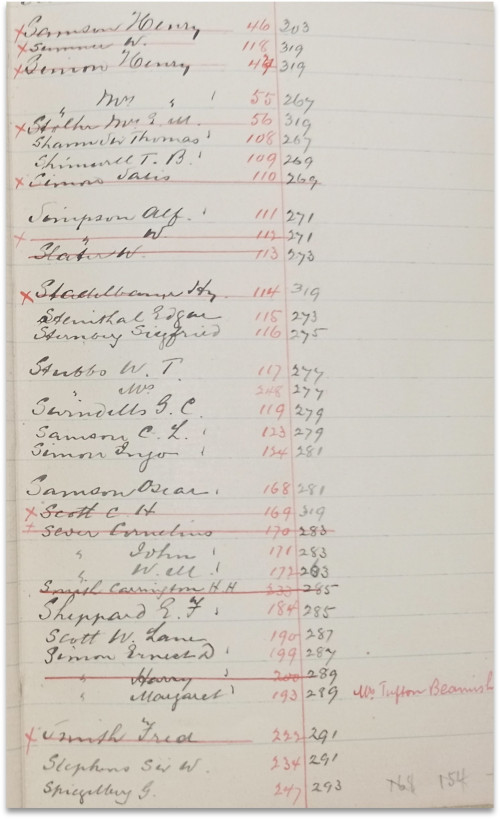
In the first 15 years of the Society, 172 people were listed as guarantors, each pledging £100 of their own money against the society to ensure any financial disaster could be swiftly mitigated. This shows a level of trust and faith that seems ludicrous today, equating to roughly £10,000 of personal funds per person. This was especially helpful in the First World War.
The great, the good and the forgotten are named as guarantors but some of the most interesting represent that Mancunian spirit which welcomed and inspired Hallé in the first place. T.C. Horsfall (founder of the Manchester Art Gallery), James Aikman Forsyth (founder of the Forsyth Brothers music shop), Charles E. Lees (Oldham MP, philanthropist and founder of the Gallery Oldham), Margaret Gaskell (founding governor for Manchester High School for Girls), C.P. Scott (journalist and owner of the Manchester Guardian) and more, ensured that the public interest purpose of the orchestra grew and never strayed from its responsibility to the people of Manchester. Most influential was the conductor employed by the Society to carry on Hallé’s work – Hans Richter.
Friend of Wagner and Elgar, internationally respected conductor and pushed boundaries of orchestras and composers throughout his working life. His lesser-known contribution to musicians and their audiences however, was the establishment of the Hallé Pension Fund almost immediately upon his appointment. Akin to the also recently established Mancunian institution, the Musician’s Union, the Fund was a subscription-based service run by the musicians of the orchestra which ensured a pension pay out upon retirement. In the days when there was no state pension, a financial security for musicians administered by musicians was a radical life saver for many.
As well as subscriptions, the orchestra programmed Pension Fund concerts to supplement the pot which were incredibly successful. Donations were sent specifically as gifts for the Pension Fund, to be spent directly on the musicians. For instance, in 1916 the minute book shows £500 (approx.. £30k) was bequeathed by Ida Freund for the players, in memory of her uncle L. Straus, a previous Hallé player; and in 1925 £1000 (approx. £41k) was bequeathed to the fund by Catherine Hankinson in memory of her music teacher and original Hallé musician Sigfried Jacoby. During World War Two, public donations and bequests to the fund increased from £25 6s 6d in 1940, to £299 4s in 1941 and then a huge leap in post-war contributions such as £7241 3s in 1953.
The incredible lifeline of such funds saved families, offered security and inspired loyalty alongside a public recognition of the value of the musicians and their services. And true, while money isn’t everything, it certainly helps.
Other resources that have been given to the Hallé has been in the form of instruments and equipment such as the 1695 Stradivarius violin gifted to the city of Lincoln by a private owner with the explicit instruction that it can only be played by the Leader of the Hallé Orchestra; a building gifted to Charles Hallé by Charles E. Lees in 1893 for his music school the Royal Manchester College of Music; decades of sponsorships and equipment to tour the orchestra all over the world; the Hallé Club run by audience members and fans of the Society’s concerts in 1945 to offer the option for smaller contributions to the Hallé Endowment Fund for those who cannot afford to be Guarantors; free lecture series (now our free pre-concert talks) with musicians about the repertoire to offer musical and historic insight into the performances.
As Heather discovered, the loyalty and love for the Hallé and of the Hallé has manifested in philanthropy both large and small for its entire history. The inspiration continues with an increased number of archival donations of memories and treasures as the archive project continues, people giving their love of the Hallé and entrusting their memories to the archivists. Thanks to the philanthropy of the National Lottery Heritage Fund, they are able to do these memories and gifts the respect they very much deserve.
Heather Roberts
Project Archivist
Hallé Concerts Society
Related
Hallé Archive Collections, 1858-present
Papers of Thomas Coglan Horsfall (held at University of Manchester Library)
Editorial Correspondence of C.P. Scott (held at University of Manchester Library)
Royal Manchester College of Music Archives, 1893-1973 (held at
Royal Northern College of Music Archives)
All images copyright Hallé Concerts Society. Reproduced with the kind permission of the copyright holders.

